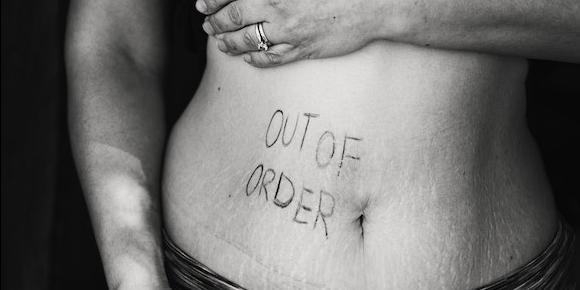What your poop says about your health: Chiropractic Tips

- posted: Mar. 22, 2023
One of my favorite books for kids is "Everyone Poops" written by Taro Gomi. It is a great book to show how important and natural bowels are. There are many people who are embarrassed to defecate in a public place or around other people. This is called "shy bowel" or "Parcopresis".
We all need to have a bowel movement to survive. This is our body's way of cleansing. It is a natural process to get your waste eliminated.
Your poop can tell a lot about your body's health.
So, what is poop?
Poop is waste products like undigested food, salts, bacteria and other substances your body couldn't digest. We have over 30 feet of digestive tract in our body so making sure the intestines are clean is very vital to our health and longevity.
What does poop tell us about our health?
When your body is healthy, you will see it in your digestion. If you are not healthy, it will also show up in your digestion. The shape, color, consistency, odor and amount of poop is a great indicator of where you stand with health.
What does healthy poop look like?
There are 4 factors to remember when analyzing feces.
1. Shape
2. Size
3. Smell
4. Shade
Shape: Healthy poop should be shaped like a torpedo and be in one single piece. It should not be pellets.
Size: Bowel movements should pass easily. There should be minimal straining and if you are straining often, it normally means you are dehydrated or need to eat more greens. Probiotics can also help to keep bowel movements normal.
Smell: Poop should smell. Bacteria that is released from your intestines give off smell. Meat and dairy normally make bowels smell a bit more along with sulfur rich foods. There should be a consistent smell and unless you have a massive change in diet, it should not change drastically.
When you body can not absorb the nutrients in food, it can lead to a stronger smell. Gut flora and microbiome is very important to gut health and any intolerance to foods can lead to stress on the internal organs. If you begin to become constipated, when you do eliminate, the smell is much stronger because the bacteria will begin to fester if not released.
Shade: Stools should be dark brown in color. Since we normally see our bowels, any consistent changes in color mean there may be potential health problems eventually.
What is unhealthy poop?
Red Poop:
This can be a sign of hemorrhoids, gastrointestinal bleeding unless you have eaten beets. Beets can change the color of your bowels.
Green Poop:
This is the least severe abnormal poop to be concerned with. This color may mean you have changed your diet or food is moving through your intestine faster than it should which can prevent bile from being able to coat your waste properly.
More serious issues are Crohn's Disease, Ulcerative Colitis, Irritable Bowel Syndrome or Inflammatory Bowel Disease.
Yellow Poop:
This is a very good indicator of Gallbladder issues (or lack thereof). It can also be Giardia Infection.
White Poop:
This can mean that bile is not traveling through the intestines. Bile helps coat your waste and form a bowel movement. It is what changes our feces to the brown color because of the enzymes in bile.
Sometimes it can mean you have gallstones, pancreatic issue or can be a sign of liver disease. Antacids can also change your bowels to white.
Black Poop:
This can be a sign of your upper gastrointestinal tract bleeding. Red blood is normally a sign of lower because the blood is closer to the rectum but darker blood means the issue is deeper in the tract.
As you can see, not all of these situations are an emergency. Before panicking, note what you are eating and drinking. If you are also experiencing pain, loss of weight, vomiting or fever, this is an emergency situation.
Loose or Hard Poop:
Diarrhea: Means that food is moving through your intestines too fast, dehydration or a stomach issue.
Constipation: Means food is traveling too slow in the GI Tract. It also means the large intestine is absorbing too much water and not applying it to the stool.
Shape:
Stools should be torpedo shaped. It not, there is an issue with either the food you are eating or the digestive tract.
If bowels come out in lumps, it is a sign that you are constipated and not getting enough fiber in your diet to bulk up the stool. It can also be dehydration.
If bowels movements are long, pencil-thin, then it can be a sign of obstruction or Irritable Bowel Syndrome.
Here are 3 easy lifestyle changes that can help your bowels and body:
- Eat More Organic Plants:
Plants have fiber and nutrients that your body digests easily. Foods like kale, spinach, collard greens are great for digestion. - Peppermint Tea: Peppermint tea helps the intestines decrease inflammation and helps with bloating, gas and indigestion.
- Avoid Artificial Sweeteners: Sorbitol and mannitol are very bad for digestion. These two ingredients can spend a long time in your stomach and cause bloating and diarrhea.
- Take Supplements: Soil Based Probiotics are needed to keep the lining of your intestines strong and help your microbiome. Soil based is key since these probiotics can survive in your stomach longer than non-soil probiotics. Pineapple and fermented foods have tons of enzymes and help with digestion.
Your bowels say a lot about your lifestyle, internal health and vitality. There are a lot of people that are embarrassed to talk about their bowels. If that is you, please try and pay attention to your bowels since it is an indicator of a problem that may be lurking in the systems and ready to show its face. Don't be afraid to ask questions about your bowels to your doctor, we all understand that it is crucial to health.
Dr. Amie Gregory, DC, CCEP, ANF is a San Francisco, CA and San Carlos, CA chiropractor that understands full body health. She works with athletes, expectant moms, office workers and everyone else in between. Contact our San Francisco, CA chiropractic office or San Carlos, CA chiropractic office today!
Resources;
- “Giardia Infection (Giardiasis).” Mayo Clinic, Mayo Foundation for Medical Education and Research, 16 July 2021, www.mayoclinic.org/diseases-conditions/giardia-infection/symptoms-causes/syc-20372786.
- Orenstein, Beth W, et al. “Is Your Diet Giving You Diarrhea?” Everyday Health, www.everydayhealth.com/diarrhea-management-photos/diarrhea-and-diet.aspx.
3. https://mysolluna.com/blog/healthy-poop/
Location
Find us on the map - Please click desired location below
Precise Moves Chiropractic San Francisco
3150 18th Street, Suite 334
San Francisco, CA 94110, United States
24 hour Scheduling makes it easy!
(Hours may change due to doctor availability)
Hours in the mission district, San Francisco
8-12pm
Closed
3-6PM
8-12PM
3-8PM
8:00 am - 12:00 pm
Closed
